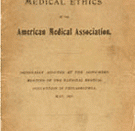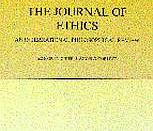Webster's New World Pocket Dictionary defines ethics as "moral standards" and as a "system of morals." Webster's then defines moral as, "of or dealing with right or wrong." Similarly, media ethics are moral standards that are applied to the media. An example of this is the Society of Professional Journalists' Code of Ethics(1), a standardized list of items that members of the SPJ use as a guide in their strides to be effective journalists. In a similar manner, media professionals sometimes use their code of ethics as a device to shield themselves from attacks that are often led by individuals from the public who are dissatisfied with the journalist's work. Just as codes of ethics are utilized in various ways, the definition of media ethics is multifaceted.
There is no single, ruling definition of media ethics. Instead, the concept of media ethics exists in many forms that are all based on a similar premise of acting as a blueprint from which media personnel can base their practices and their decisions.
Ethics are not absolute rules, and individuals who work with codes of ethics are not legally bound to them. But, a media worker may be held professionally responsible for their actions if they are in conflict with their profession's code of ethics. For example, if a journalist was to include racist remarks in their newspaper story about an Asians American politician, that journalist would not likely be arrested, but they would certainly be fired from their job. Even though ethics are not as absolute as laws, individuals can still be held accountable both socially and professionally, if they intentionally or carelessly break the code of ethics that they work from.
Ethics vary from individual to individual in the same way that they vary from organization to organization. In Webster's...


